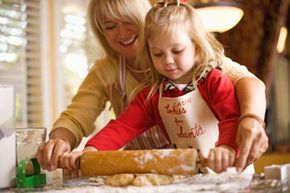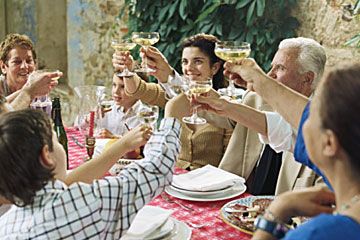Sometimes it can seem like the whole world changes overnight, every night. Divorce, blended families, single parents and tragedy can make us feel like the family units that many of us came from are a thing of the past. Often, our family traditions seem like the only things keeping us together, linking our past generations with the bright hopes of our future.
Almost every family tradition has its roots in necessity. Over time, that necessity becomes nostalgia, and eventually, it just becomes another way for families to relate and connect with one another. In fact, as families evolve and change, those traditions once again become necessities, as they assume new meaning in the context of our need to communicate and understand our loved ones.
Advertisement
Family dinner, for example -- whether nightly, weekly or on holidays -- often carries with it a lot of small but beautifully significant pauses, associations and kindnesses. While your concept of family dinner may descend from a prior generation's beginnings in this country, let's say, it's those same traditions that we choose to preserve that keep us from sitting at the table, many years later, playing on our phones and ignoring each other.
A great deal of the reason behind the usual traditional holidays and observances, in fact, is about establishing a healthy and meaningful purpose for coming together. The winter holidays only come once a year, and even for the most secular family, they provide the simple pleasure of knowing that you'll see your loved ones at least that often. For more religiously observant families, the holidays still provide a healthy reminder to let the world go on spinning while we connect with our families and engage in our heritage together.
Many of our traditions make a lot more sense if you look at them that way: not the holiday itself, but the pretext it gives us to affirm our faith -- not just in our beliefs or our cultural duties, but our faith in our families and the love we share, too.
Advertisement


